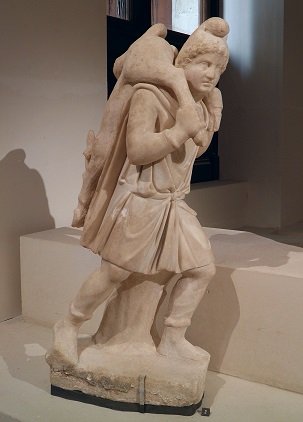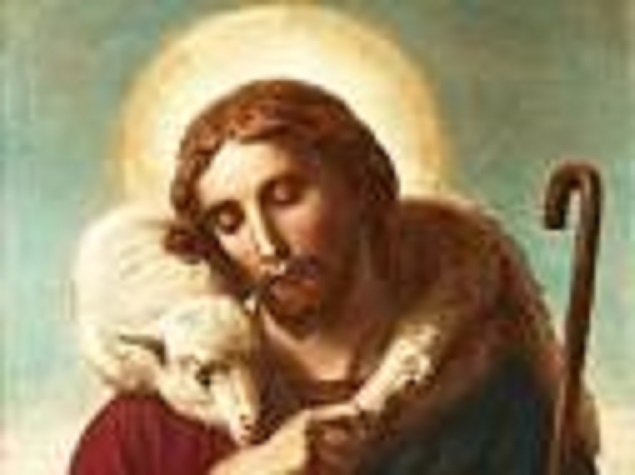- Jan 26, 2013
- 1,017
- 445
- Country
- United States
- Faith
- Christian
- Marital Status
- Married
- Politics
- US-Constitution
Possibly, but you were right in your earlier post that if they were Nestorians they would not anathematize themselves. It's enough for me to examine the evidence more closely and to look elsewhere. Thanks also for the maps. This is such an important period to research and to understand. Whenever the Kingdom of God recedes I believe His Church ("capital C") should look deeply. We learn more from our failures than we do from our successes and I believe God teaches us in this manner in order for us to grow in Him. When the Great commission was not moving outward from Judea and Galilee within the early church God allowed the fermenting opposition to the Gospel to create a wave of persecution. As we know our Lord never was reticent to meet His attackers head on but set His eyes like flint towards the cross, whereby He overcame sin and death. In like manner the Church must model His overcoming power and will. The Jerusalem church reacted to the persecution by taking the Gospel far and wide. So God took an evil and made it into a good by spreading His life giving message to the Gentiles. Paul and Barnabas argues hotly about John Mark, thus breaking the unity of the mission. But God, even used that for the greater spread of the Gospel and we see while many others had left Paul in his later imprisonment by the Roman authorities that John Mark was there - that bond completely made whole by our God who is the doctor of wholeness, healing divisions than man believes cannot be healed.Well, I should emphasize here that they very well could have been Nestorians. There were both Orthodox and Nestorians in Arabia, and depending on which part of Arabia you want to look at (keeping in mind that Arabia is more than just Saudi Arabia, where Muhammad began his prophetic career), it is highly likely that there were more Nestorians in a given place than Orthodox. .........
the Axumites first invaded south Arabia/Yemen in response to reports of the Himyarite king's persecution of Christians there, which would seem to indicate some Oriental Orthodox affinity on the part of the Christians of the area -- that is, until we remember that the kingdom of Axum would've just been the nearest Christian kingdom in the neighborhood. Of course, in that light it would make sense to appeal to them in particular, rather than Christians in other regions.
Similarly, you can find in older sources (e.g. Jeffery's "Christianity in South Arabia", in Anglican Theological Review Vol. XXVII, No. 3, July, 1945, pp. 193-216) Simeon of Beth Arsham being introduced as "Bishop of the Persians", which would seem to make it sound to modern ears like these Christians would have been Nestorians, as the Nestorian Church was undoubtably the largest within the Sassanid Persian empire. However, we know from Simeon's other writings already presented that this was not his theological view nor confessional allegiance. Here it is important to note that the "land of the Persians" at this time would not have been limited to Persia/Iran proper, but would have also included Yemen and the east coast of Arabia, in addition to Al-Hira, the capital of the Arabs in Mesopotmia (marked as Al-Hirah in the map below, taken from Wiki; apparently known as Hirta d-Beth Nu'man in Syriac), where Simeon was actually based. So in reality what we have throughout the region -- in Arabia proper and places further east -- is Syriac/Assyrian/Syrian (these being three designations for Aramaic and/or Syriac-speaking Christians), Arab, and Persian populations under both Syriac Orthodox and Nestorian bishops, depending on the allegiance of particular people as they are found in a location (with many places being mixed, no doubt; the Orthodox Syrians and the Nestorian Syrians shared and continue to share a lot culturally, including language, though it is conventional to refer to the Orthodox as 'West Syrians' and the Nestorians as 'East Syrians'; as a matter of history, both communities had dioceses in the "others'" territories, with Syriac Orthodox in Iran and even Afghanistan, and Nestorians in Alexandria, Damascus, and Jerusalem, as already mentioned).
I like to examine history from that perspective and always ask myself were they following their own wisdom or the Wisdom of God? Of course I was not there so I try not to be overly critical of someone's intent but I do believe we can always learn from history - certainly I've learned much from my own. God's correction is our compass and I'd be lost without it. God is good and God is patient with us all!
Sure. I would recommend anything from the aforementioned (Arthur) Jeffery, who did a lot of important work on both early Arab Christianity and also early Islam. I only personally own his Foreign Vocabulary of the Qur'an, but he also wrote a few other works in a similar vein, in addition to many more journal articles such as the one already referenced (which contains a translation of Simeon of Beth Arsham's letter, in addition to a few other early sources on Christianity in pre-Islamic Arabia).
As far as primary sources are concerned, I would definitely recommend the Chronicle of (Ps.-)Dionysius of Tel Mahre, more accurately (and anonymously) known as the Chronicle of Zuqnin. It was at one time attributed to Dionysius of Tel Mahre (9th century Syriac Orthodox patriarch), but has since 1896 been recognized to have been written earlier, likely by a monk of the monastery of Zuqnin (in Mesopotamia, near what is today Diyarbakir, Turkey). It is written in four parts, covering up to 775 (the likely death of its author, assumed by many to be the stylite monk Joshua). I only have the third part (translated by Witakowski as part of Liverpool University's "Translated Texts for Historians" series), but it contains a version of the letter of Simeon of Beth Arsham as well as other interesting insights. Apparently the fourth part is the most historically important (and also probably the only 'original' -- the others being based to varying degrees on earlier sources such as the Chronicle of Eusebius and the History of John of Ephesus), being an account of the Arab Muslim conquest of the Levant and the daily life of Christians in the aftermath. This chronicle is interesting not only for what it contains, but also because the only surviving manuscript (Vat. 162) is the autograph, which, as you might guess, is pretty unusual for a work of this age.
Apparently the Iraqi scholar Amir Harrak, who has written much on early Syriac Christianity, has translated parts III and IV of the chronicle into English (covering the years 448 to 775), but I have not been able to find a copy of that book at a reasonable price. Witakowski's translation of part III alone seems to be more widely available, however. I purchased it for under $10 brand new on E-bay some time ago (it is rather short, at under 200 pages).
Another good work is Brock and Harvey Holy Women of the Syrian Orient (1987, though I know there are subsequent editions; it is widely available). Its fourth chapter covers the women martyrs of Najran, from both Simeon of Beth Arsham's letter and the Book of Himyarites. I know that the recently-reposed Palestinian scholar Irfan Shahid, who wrote a lot on the history of the Arab Christian tribes as they related to Byzantium (e.g., his three-volume work Byzantium and the Arabs in the Sixth Century, 1995-2010; earlier works on the same theme covering the fifth and fourth centuries are also surely worth looking into), also published on the martyrs of Najran, but I have not read his work on the topic.
For a more general historical study on the subject of Christianity in pre-Islamic Arabia, I can recommend Trimingham (1978) Christianity Among the Arabs in Pre-Islamic Times. Trimingham goes into the linguistic situation in Arabia before the rise of Islam, the character of Arabian Christianity and how that might explain why it was not able to withstand the onslaught of the Muslims as well in Arabia proper as it did elsewhere, and so on. It's quite good, but unfortunately a bit hard to find these days. A trip to the library is probably in order to track down a copy, as I am unaware of it having been reprinted or made available electronically at any point.
Since I mentioned the Synod of Dadisho' earlier, you can read about that in brief summary in Suha Rassam's Christianity in Iraq (2010; third edition 2016). Understandably, this one gets harder to read the closer it gets to the modern day, given the precarious state of Christianity in that country today, but it is nonetheless a very good historical overview the topic, and importantly (in my view, anyway), it is written by an Iraqi Christian (I believe she is Catholic, but she covers all the Christian sects in Iraq to at least some degree, and to the best of my recollection in a fair manner). That one is still available directly from the publisher, or even cheaper used on Amazon.
Hopefully these will be enough to get you started.
Great stuff! This is such an important period for Christians to understand and it is not commonly taught, at least to the level whereby we can understand the dynamics. Thank you for the many references for further edification.
May the Lord Bless you and your family
Patrick
Upvote
0


